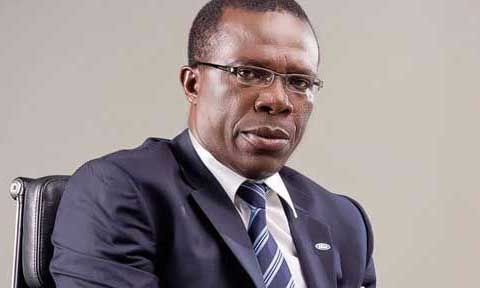By Tolulope A. Adegoke
“With courage, you will dare to take risks, have the strength to be compassionate, and the wisdom to be humble. Courage is the foundation of integrity.” – Mark Twain
Indeed, courage is grace under pressure. Cosmos Maduka’s story is particularly instructive to youths across the world. It reveals that there isn’t just hope for them, but that there are countless opportunities that they can exploit and maximise to their advantage.
Maduka was born in 1958, in Jos, Nigeria to Mr and Mrs Peter and Rose Maduka. In 1962, at the age of four, tragedy struck, with the passing of his father. With the poor and pitiable status of his family’s finances, he was faced with no other choice than to start providing the basic necessities of life for himself. At the age of seven, he withdrew from primary school at Elementary 3 and started assisting his mother in hawking akara (fried bean-cake) in Plateau, Jos.
In 1970, when Maduka was twelve years old, his uncle who resided in the Ebute Metta area of Lagos, took him to serve as an automobile apprentice in his auto shop located at No 88 Griffith Street, close to Oyingbo Bus stop. Since the uncle himself had no place of his own to stay, he usually slept at his friend’s place, while Maduka slept in the shop at the end of each day.
Not long after he resumed work, young Maduka, through his diligence, dedication and honesty, had totally won his uncle’s trust. This made his uncle to give him larger and more sensitive responsibilities he would not naturally have given anyone, including travelling alone to make purchases on his uncle’s behalf from Nnewi. In fact, at the age of 14, he was sent to work at one of the company’s branches in Sokoto in northern Nigeria.
Sadly, however, after absenting himself from work at a time to attend a church camp programme without his uncle’s permission, his relationship with his uncle fell apart. The event caused his uncle to immediately terminate his apprenticeship, and to subsequently settle him with the paltry sum of 200 naira (not up to a dollar now). The little sum was given to punish him at the time.
With his settlement, Maduka founded an auto spare parts business called “The Maduka Brothers”, with his brother. Unfortunately, the business soon collapsed as the two parted ways due to ideological differences. Fortunately, however, the business had earned him an additional 100 naira. So, with just 300 naira in capital, Maduka decided to have another trial at entrepreneurship. He started a new business as the sole proprietor. He began to buy and sell motorcycle spare parts from Boulous Industries.
Maduka soon found that the major product that was giving him a lot of returns was Boulous’ new innovation – motorcycle crash bars. Consequently, he began to buy several of them and would remove the address of Boulos from the carton so that people would not know where he was buying from. Within a short period, his capital had risen from 300 naira to 3,000 naira. At the age of 19, Maduka decided to get married to a beautiful woman, named Charity. A short while after his marriage, he started importing products. Sadly, misfortune struck when he received wrong consignment, leading to a huge loss. This loss led him into several debts, and his landlord whom he had owed several months’ rent ended up locking his shop.
With nothing in hand, Maduka brought out the bathroom scale he had received as a gift during his wedding, took it to the market, and started to charge 10 kobo from everyone who checked their weight. This daily routine seriously distressed his wife, as she considered what her husband was going through, which contrasted with their previous comfortable state.
After saving up a little capital, Maduka teamed up with a friend of his, Dave, to start a new business called CosDave. Not long after, however, their new business partnership fell apart due to disagreements. This new breakup prompted Maduka to start yet another business called Coscharis. The name Coscharis was formed by the combination of his name, Cosmas, and that of his wife, Charity.
Maduka’s big break finally came when in the same year, 1982, the Nigerian government granted ten vehicle companies import licences, and his Coscharis Motors was selected. Since then, his company has continued to grow sporadically, with several branches around Nigeria. Today, his personal net worth, according to an interview he had with Forbes Africa in 2015, is over $500 million US dollars and counting.
As of 2016, Coscharis Motors was not just one of the largest automobile dealers in Nigeria, but was also the exclusive distributor of BMW automobiles in Nigeria. Maduka’s success story is that of a man who started from the very bottom, went through several hurdles, and still turned up extraordinarily successful. His story teaches that resilience, hard-work, and taking advantage of opportunities at the right time is key to success for any entrepreneur anywhere in the world. Maduka has transformed from a zero to a HERO! It is therefore pertinent at every juncture of our lives, that we must acknowledge this obvious fact: that we need a backbone, and not a wish bone to keep supporting our courage faculty and maximizing our potentials for the fulfilment of our destiny(s) and achievement of our dream(s) and whatever aspirations we may have within us as humans to bless mankind with.
I tell you, friend, you too can rise from your present level to an exceedingly glorious and influential one. This is the will of God for you.
Exemplars of Greatness Series continues next week…
Watch out for the Book titled: “The Power of an Empowered Zero” (From Zero to HERO) by Tolulope A. Adegoke. Foreword by Dr Yomi Garnett (CEO/Chancellor, Royal Biographical Institute, Philadelphia, Pennsylvania U.S.A., U.K., Abuja, Nigeria.) Edited by Ola Aboderin.

 News6 years ago
News6 years ago
 Featured6 years ago
Featured6 years ago
 Boss Picks6 years ago
Boss Picks6 years ago
 Headline6 years ago
Headline6 years ago
 Headline6 years ago
Headline6 years ago
 Headline5 years ago
Headline5 years ago
 Headline6 years ago
Headline6 years ago
 Headline6 years ago
Headline6 years ago














